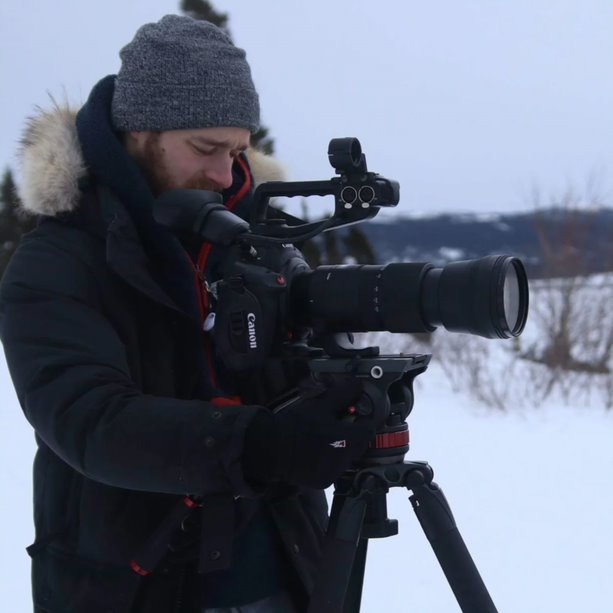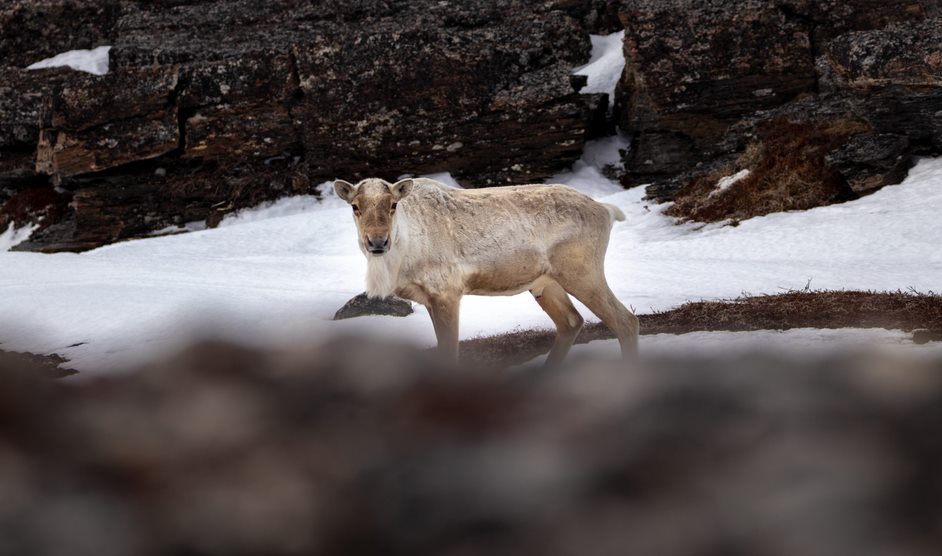Ever since he was a child, David Borish wanted to tell stories about ecosystem and community health, and now thanks to his studies at the University of Guelph, he is doing just that.
A documentary film he directed and produced for his PhD is debuting this fall at festivals and screenings – including one hosted by U of G’s Guelph Institute of Development Studies (GIDS).
HERD: Inuit Voices on Caribou documents Inuit communities in the Nunatsiavut and NunatuKavut regions of Labrador as they grapple with changes brought on by a total hunting ban, implemented in 2013, on caribou – an animal with which they hold social, emotional and cultural connections.
But the film is more than just a platform for Inuit to tell their stories. It’s also the raw data of Borish’s PhD dissertation, completed in 2021.
“Usually, people use documentary film to communicate research, not do the research themselves,” he says. “But you can actually use the film as the data.”
With that in mind, Borish set out to create a new technique called video-based qualitative analysis to promote knowledge mobilization. He repurposed two video editing programs, Final Cut Pro and Lumberjack Builder, to look for common themes in not just what people said but also their tone, body language and location.

Collaborative process connects Inuit communities
“I wasn’t extracting the words from the participants, I was keeping it connected,” he said.
Throughout his undergrad degree at U of G in international development studies, Borish did photography on the side. During his third year, he combined his hobby and his studies to create a documentary film on tiger conservation, sustainable development and Indigenous communities in Malaysia.
By his fourth year, he felt supported by U of G’s strength in socio-environmental studies, and reached out to Dr. Ashlee Cunsolo, now at Memorial University in Newfoundland, after she spoke during a class.
Cunsolo was then working with Labrador communities on research in health and well-being, including Inuit communities who were exploring the idea of creating a documentary to illustrate the effects of the then four-year-old hunting ban on caribou.
“Yes, it was my PhD work, but it was something that was led by Inuit, and I happened to be at the right place to help,” said Borish, now a post-doctoral researcher at Memorial University while also working with the Torngat Secretariat.
The film has been public only since August, but is already available to audiences on CBC Gem, and communities across Labrador have watched it through screenings. After more than five years of community collaboration, Borish and the Caribou Project Steering Committee are excited to share their work.
And for broader audiences, Borish hopes the film “provides them a glimpse into what life is like in Labrador, and how important these connections between people and caribou are,” and offers a chance “to think about the continued changes to people’s mental health, culture, identity and food security. All these things are so interconnected as biodiversity loss occurs.”
To learn more or to host a screening, visit the HERD website, or check out their social media @inuitvoicesherd.
